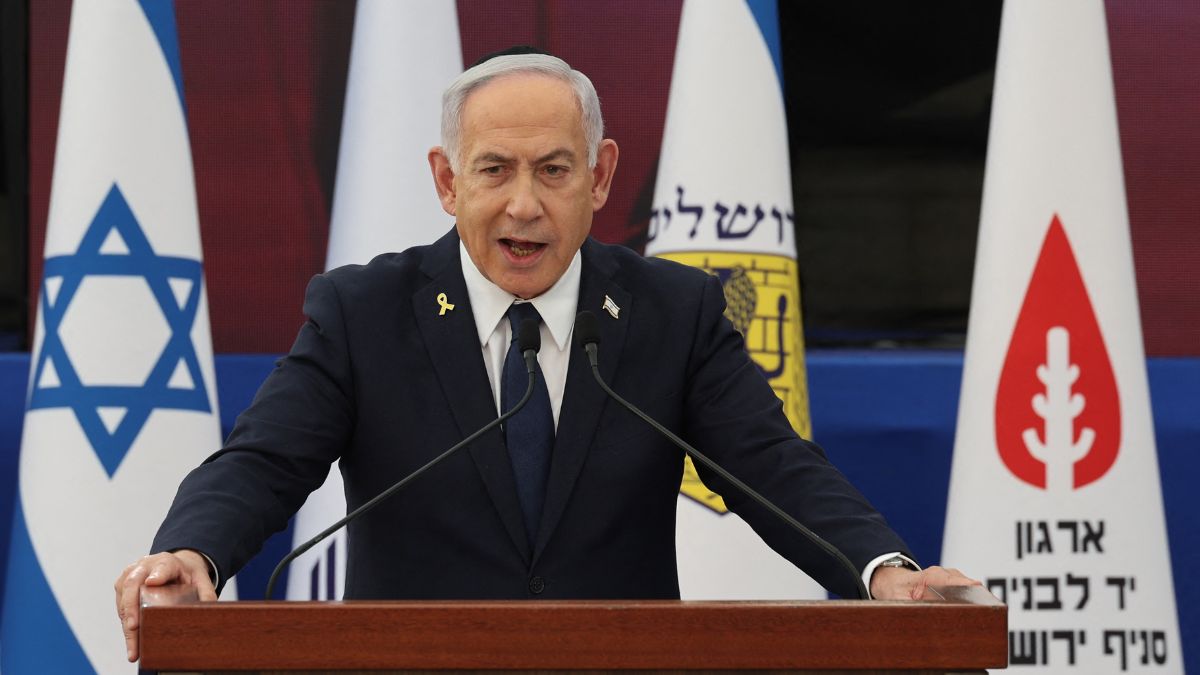A top United Arab Emirates official has issued a stark warning to Israel that any annexation of the West Bank would cross a “red line” and “end the vision of regional integration.”
The warning came just two days ahead of Prime Minister Benjamin Netanyahu’s planned high-level ministerial meeting to discuss whether to move forward with the deeply contentious proposal.
“Annexation would be a red line for my government, and that means there can be no lasting peace. It would foreclose the idea of regional integration and be the death knell of the two-state solution,” The Times of Israel quoted Emirati special envoy Lana Nusseibeh as saying in an interview conducted in the UAE Ministry of Foreign Affairs in Abu Dhabi.
It was a stark and surprising warning from Abu Dhabi, timed just ahead of the fifth anniversary of the Abraham Accords — the landmark agreement the UAE spearheaded, becoming the first Arab nation in over 25 years to normalise relations with Israel.
According to the Times of Israel report, since the signing, Emirati leaders have consistently framed normalisation as a strategic, near-irreversible decision. That’s what made this week’s message — delivered by Nusseibeh — all the more striking. Her warning underscored how deeply opposed the UAE remains to any renewed Israeli push to annex parts of the West Bank.
“For every Arab capital you talk to, the idea of regional integration is still a possibility,” Times of Israel quoted one official as saying. “But annexation to satisfy some of the radical extremist elements in Israel is going to take that off the table,” the official added.
The carefully worded Emirati statement, which referred to annexation as a potential “strategic loss,” marked the first time since the Abraham Accords that such a clear red line was publicly drawn.
This comes ahead of a high-level ministerial discussion on Thursday regarding possible annexation — reportedly in response to growing momentum among several major Western powers to recognise Palestinian statehood at the upcoming United Nations General Assembly, according to an Israeli official quoted by The Times of Israel.
The decision to speak directly to an Israeli audience echoed a pivotal moment from 2020, when UAE Ambassador to the US Yousef Al Otaiba published an op-ed in a major Israeli newspaper, warning that annexation would jeopardise normalisation.
That message ultimately helped pause the previous Netanyahu government’s annexation plans — and paved the way for formal ties between the two countries.
Now, five years on, Abu Dhabi is once again urging Israel to choose between deepening regional integration — or risking it altogether.
“Recently, Israeli leaders have promoted excited talk about normalisation of relations with the UAE and other Arab states. But Israeli plans for annexation and talk of normaliszation are a contradiction,” Otaiba wrote in June 2020.
The op-ed proved pivotal in shaping the path to the Abraham Accords, striking a chord with Israelis — 80% of whom supported shelving annexation in favour of normalising ties with the UAE.
Netanyahu ultimately dropped the annexation plan in exchange for diplomatic relations with Abu Dhabi, in a deal brokered by then-US President Donald Trump. However, The Times of Israel later revealed that the UAE had only secured a US promise to oppose annexation until the end of Trump’s term.
Recognising the move’s limited impact without American backing, Netanyahu did not proceed. That restraint aligned with the Biden administration’s firm return to supporting a two-state solution and its opposition to annexation.
Now, with Trump back in office, Netanyahu’s far-right allies view this as a rare political opening. They argue that Washington may now be indifferent — or even quietly supportive — of declaring Israeli sovereignty over West Bank settlements.
Hardliners are further emboldened by recent announcements from France, the UK, Canada, Australia, and Belgium to recognise a Palestinian state — which Israel sees as a reward for Hamas’s October 7 attack.
In response, Finance Minister Bezalel Smotrich on Wednesday proposed annexing 82% of the West Bank and called on Netanyahu to act.
Amid this escalating pressure, Nusseibeh’s warning also served as a thinly veiled message to the Trump administration — one that underscores Abu Dhabi’s deep concern over the direction of Israeli policy and its potential impact on regional stability.
“We believe that President Trump and his administration have many of the levers to lead the initiative for a wider integration of Israel into the region,” said Nusseibeh, the UAE’s assistant minister for political affairs and special envoy for Foreign Minister Abdullah bin Zayed.
Nusseibeh, formerly the UAE’s ambassador to the United Nations, is considered one of the country’s most influential diplomats, with close ties to the royal family.
“We trust that President Trump will not allow the Abraham Accords tenet of his legacy to be tarnished, threatened or derailed by extremists and radicals,” she added.
Like UAE Ambassador Yousef Al Otaiba before her, Nusseibeh appeared to direct her message toward the Israeli public, not its government — which polls show enjoys only minority support.
Arguing that annexation would amount to a rejection of the spirit of the Abraham Accords, she said: “That choice should be put directly to the Israeli people.”
While warning what Israel stands to lose if it proceeds with annexation, Nusseibeh also pointed to what could still be gained — suggesting that Arab countries, including Saudi Arabia, remain open to normalising ties with Israel.
But any future agreements, she said, would depend not only on Israel shelving annexation plans, but also on committing to “a credible, irreversible pathway to a future Palestinian state.”
“For every Arab capital you talk to, the idea of regional integration is still a possibility, but annexation to satisfy some of the radical extremist elements in Israel is going to take that off the table,” she said.
She emphasised that Abu Dhabi’s position was not arrived at lightly.
“When Hamas tried to derail the Abraham Accords vision of regional integration with the October 7 terror attacks, we were firm in our response,” Nusseibeh said, pointing to the UAE’s swift condemnation of the attack, its recognition of Israel’s security concerns, and its role in delivering more humanitarian aid to Gaza than any other country.
“Over the last two years… our view was that the vision of the Abraham Accords remains pertinent — that you can’t let extremists set the trajectory of the region,” she said.
But with Israel accelerating efforts to entrench its presence in the West Bank and Gaza, Nusseibeh warned:
“We are worried that all of us in the Middle East are moving toward a point of no return,” adding that now is the time to appeal directly to Israelis before regional ties are “irreparably damaged.”
“The Abraham Accords’ tenets of prosperity, coexistence, tolerance, integration and stability,” she said, “have never looked more under threat than [they are] today.”
Still, she offered Israelis a message of cautious hope.
“There is an outstretched hand, despite all of this misery, in the region to Israel. But, annexation would withdraw that hand,” she said.
With inputs from agencies
End of Article

)

